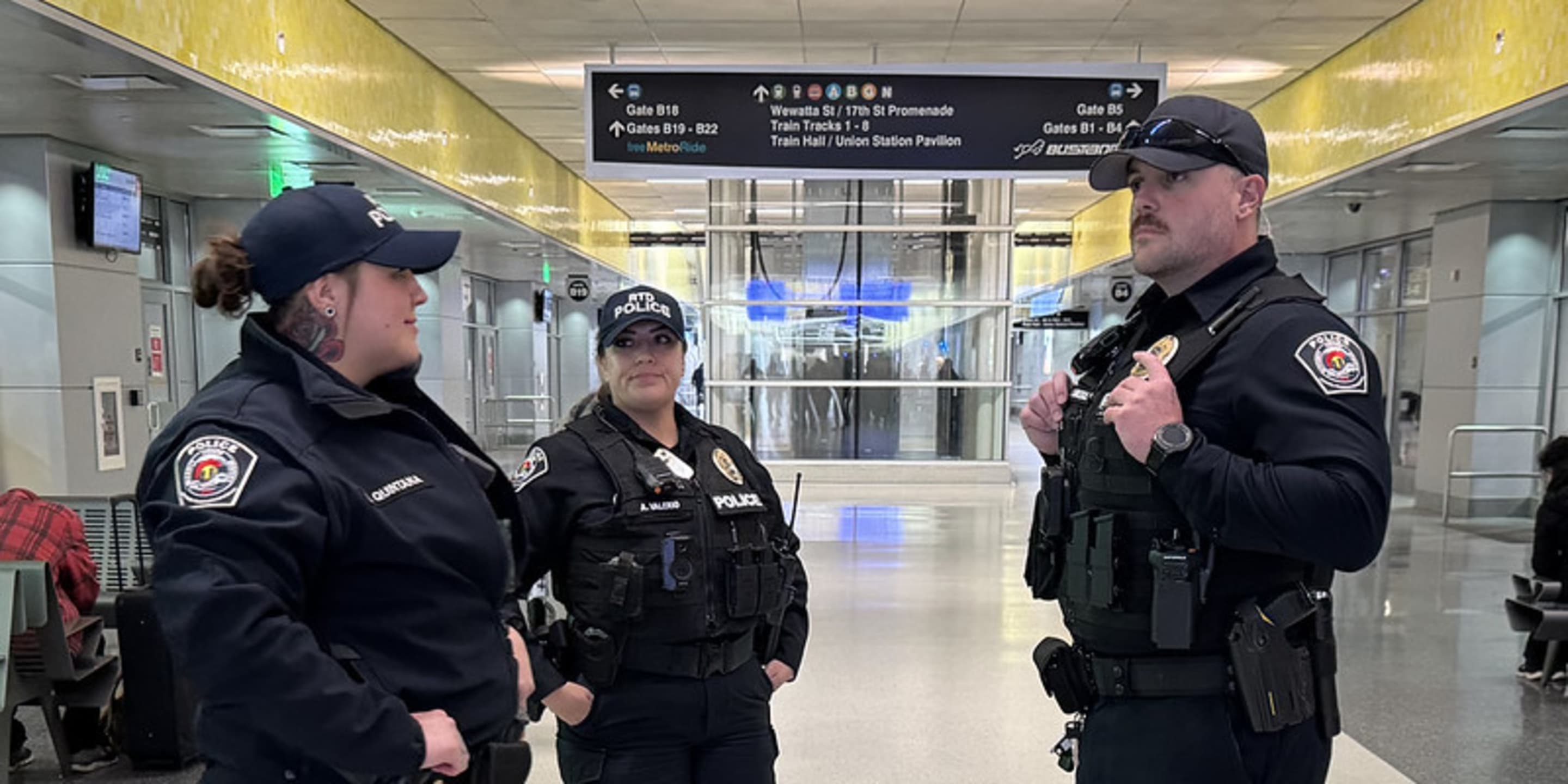
RTD increases fare checks on rail system by over 500% as part of four-step security plan
DENVER (Aug. 18, 2025) –– The Regional Transportation District (RTD) has increased its fare checks by over 500% since May 2024 to ensure individuals on light rail and commuter rail trains are customers who have paid fare to board. With approximately 100 officers in the Transit Police Department (RTD-PD), the department’s growth has afforded increased patrolling across RTD’s stops and stations including on the agency’s vehicles. Throughout 2025, officers are conducting between 300,000 and 400,000 fare checks a month on the rail system.
About 5% of RTD’s budget is comprised of fare revenue from customers. Transit Police officers underwent fare enforcement training in October 2024 and the officers – along with contracted Allied security officers – are equipped with handheld scanners to conduct fare enforcement.
An in-depth review led to RTD-PD’s four-step security plan initiated in August 2024 which ramped up fare enforcement to support customers and RTD employees. The agency found that 6% of customers did not purchase fare.
Another benefit of the fare checks is the ability to directly interact with those using RTD services. Chief of Police and Emergency Management Steve Martingano said, “Checking people's fare puts us in contact with customers, accomplishing three of our four policing objectives.”
The four-step security plan requires maintaining a high visibility presence, supported by RTD initiating 24/7 patrolling across the district in May 2024 with department growth to 120 officers anticipated by yearend. For comparison the Transit Police Department had 19 officers in 2022. As part of increased patrolling, officers also are getting out of their cars to survey stations and board RTD vehicles.
When observing behavior that does not support a Welcoming Transit Environment, officers proactively educate customers to by treating other customers with respect – another aspect of the Transit Police’s security planning.
Martingano noted the fourth step in RTD-PD’s security plan is to utilize technology. “Using real-time security video, officers can look at any camera in our 2,345-square-mile service area,” he said. “These steps have led to a huge reduction in criminal conduct, including drug-related activity, thus allowing ridership to grow.” Officers can access video feeds from their laptops in addition to RTD video investigators conducting real-time video surveillance of stops and stations.
In addition, beginning in 2023, the RTD-PD established live look-in cameras with the ability to hear and view activity on a vehicle for use in emergency situations across its bus fleet. The agency’s commuter rail is already equipped with the live look-in technology and the retrofitting of light rail vehicles with the technology is in progress.
With the combined tactics, including fare checks, security-related calls into the RTD-PD are down by about 33%, with reports of illicit drug use down anywhere between 50-70% a month for 2025 compared with the same months during 2024.
The department also periodically conducts fare sweeps, which is a coordinated enforcement effort over the course of a day to ensure compliance with fare policies. The sweeps entail collaboration among Transit Police officers, security teams, rail and bus operations, video investigation units, police communications, and support from neighboring law enforcement agencies that assist by providing additional officers. RTD-PD works with other agencies to inform them about RTD operations and understand how Transit Police officers are deployed throughout the system.
Fare checks can occur at any time and failure to present valid fare could result in a large fine, including court costs.
For monthly metrics about RTD’s fare enforcement, the number of customer boardings, the number of customer-initiated reports on the Transit Watch app and more, visit RTD’s Security Related Metrics page launched earlier in 2025.